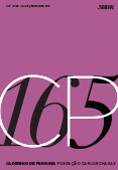Digital culture and diversity: perspectives of discourses on ICT-education policies
Keywords:
Educational Policies, Social Cartography, ICT, EducationAbstract
The aim of this article is to understand how cultural diversity and the new communication ecosystem emerging from digital cultures are represented within the discourses that frame Information and Communication Technology – ICT – policies in education, in Brazil, Argentina and Chile. It is a qualitative study that employed discourse analysis procedures to understand the results and social cartography as a way of representing the intertextual field. Discursive perspectives are mapped based on the relationship between cultural diversity and digital culture. The article emphasizes the need for cultural relevance in ICT education initiatives, as well as for recognizing digital culture as a component of cultural diversity in the design of educational policies.
Downloads
References
ÁLVAREZ, Flor et al. Aprender enseñando: elaboración de materiales didácticos que facilitan el aprendizaje autónomo. Formación Universitaria, La Serena, CH, v. 1, n. 6, p. 19-28, 2008.
BEAUCHAMP, Gary; KENNEWELL, Steve. Interactivity in the classroom and its impact on learning. Computers & Education, v. 54, n. 3, p. 759-766, 2010.
BLANCO, Juan. Horizontes de la filosofía intercultural. Aportes de Raúl Fornet-Betancourt al debate. A Parte Rei: revista de filosofía, n. 64, p. 17, 2009.
DAL MOLIN, Fábio. Rizomas e fluxos molares e moleculares da máquina-escola: confissões de um cartógrafo. Psicologia & Sociedade, Florianópolis, v. 23, n. 2, p. 303-311, 2011.
DELEUZE, Gilles; GUATTARI, Félix. Mil mesetas: capitalismo y esquizofrenia. Valencia, ES: Pre-Textos, 2004.
DEMETRIADIS, Stavros et al. “Cultures in negotiation”: teachers’ acceptance/resistance attitudes considering the infusion of technology into schools. Computers & Education, v. 41, n. 1, p. 19-37, 2003.
DIETZ, Gunther; CORTÉS, Laura Selene Mateos. Interculturalidad y educación intercultural em México: un análisis de los discursos nacionales e internacionales en su impacto en los modelos educativos mexicanos. México: CGEIB-SEP, 2011.
DUSSEL, Inés; QUEVEDO, Luis Alberto. Educación y nuevas tecnologías: los desafios pedagógicos ante el mundo digital. In: FORO LATINOAMERICANO DE EDUCACIÓN, 6., 2010, Buenos Aires. Anais… Buenos Aires: Santillana, 2010.
GORGHIU, Gabriel, et al. WebQuest in theClassroom–Analysis of its Impact. In:
INTERNATIONAL CONFERENCE ON MULTIMEDIA AND INFORMATION & COMMUNICATION TECHNOLOGIES IN EDUCATION, 3., 2005. 7th-10th June 2005.
GOROSTIAGA, Jorge. La cartografía social: aportes al análisis crítico del discurso en educación. In: PINI, M. (Comp.) Discurso y educación: herramientas para el análisis crítico. Buenos Aires: UNSAM, 2009. p. 139-160.
GOROSTIAGA, Jorge M.; TELLO, César. Globalización y reforma educativa en América Latina: un análisis inter-textual. Revista Brasileira de Educação, Rio de Janeiro, v. 16, n. 47, p. 363-388, maio/ago. 2011.
HALL, Stuart. A identidade cultural na pós-modernidade. Rio de Janeiro: Lamparina, 2014.
LACLAU, Ernesto. Emancipación y diferencia. Buenos Aires: Compañía Editora Espasa Calpe. Argentina SA / Ariel, 1996.
MALINOWSKI, Nicolás. Hacia una estrategia de investigación pluridimensional. Investigación Científica: Un encuentro con el Paradigma de la Complejidad. III–Convenio Andrés Bello, 2009.
MARTÍN-BARBERO, Jesús. Desafios culturais: da comunicação à educação. Revista Educação & Comunicação, São Paulo, v. 18, p. 51-61, 2000.
MARTÍN-BARBERO, Jesús. Diversidad cultural y convergencia digital. IC Revista Científica de Información y Comunicación, n. 5, p. 12-25, 2008.
MARTON, Ference. Phenomenography. In: HUSEN, T.; POSTLETHWAITE, T. N. The international encyclopedia of education. New York: Elsevier Science, 1994. p. 4424-4429.
MARTON, F.; BOOTH, S. Learning and Awareness. Mahwah, NJ: Lawrence Erlbaum, 1997.
MORIN, Edgar. A cabeça bem feita. Rio de Janeiro: Bertrand Brasil, 2003.
MORIN, Edgar. Introdução ao pensamento complexo. Porto Alegre: Sulina, 2006.
NINNES, Peter; MEHTA, Sonia. A meander through the maze: Comparative education and postfoundational studies. In: NINNES, Peter; MEHTA, Sonia. Re-imagining Comparative Education: Postfoundational Ideas and Applications for Critical Times. New York: Routledge Falmer, 2004. p. 1-18.
PAULSTON, Rolland. Mapeando a educação comparada depois da pós-modernidade. Educação, Sociedade & Culturas, Porto, v. 16, p. 203-239, 2001.
PAULSTON, Rolland G.; LIEBMAN, Martin. Social cartography: A new methodology for comparative studies. Compare, London, v. 24, n. 3, p. 233-245, 1994.
SANDFORD, Richard et al. Teaching with games. Computer Education-Stafford-Computer Education Group, v. 112, p. 12, 2006.
SANG, Guoyuan et al. Student teachers’ thinking processes and ICT integration: Predictors of prospective teaching behaviors with educational technology. Computers & Education, v. 54, n. 1, p. 103-112, 2010.
SOTOLONGO, Pedro Luis. Los presupuestos y las implicaciones filosóficas del pensamiento de la complejidad y de las ciencias de la complejidad. In: GONZÁLEZ VELASCO, J. M.; MORA, D. (Ed.), Investigación científica: un encuentro con el paradigma de la complejidad. La Paz: III-CAB, 2009. p. 23-34.
WELCH, Anthony R. Class, culture and the state in comparative education: problems, perspectives and prospects. Comparative Education, London, v. 29, n. 1, p. 7-27, 1993.
Downloads
Published
How to Cite
Issue
Section
License
Copyright (c) 2017 Cadernos de Pesquisa

This work is licensed under a Creative Commons Attribution-NonCommercial 4.0 International License.
Authors who publish in this journal agree to the following terms:
a. Authors retain the copyright and grant the journal the right to first publication, with the paper simultaneously licensed under the Creative Commons Attribution license that allows the sharing of the paper with acknowledgment of authorship and initial publication in this journal.
b. Authors are authorized to assume additional contracts separately, for non-exclusive distribution of the version of the paper published in this journal (for example publishing in institutional repository or as a book chapter), with acknowledgment of authorship and initial publication in this journal.
c. Authors are allowed and encouraged to publish and distribute their paper on-line (for example in institutional repositories or on their personal page) at any moment before or during the editorial process, as this can generate productive changes, as well as increase the impact and citation of the published paper (See The Effect of Open Access).









